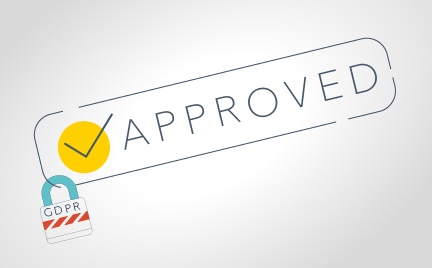Will your lead acquisition strategy pass GDPR

It's not fun, it's not exciting and it certainly isn't glamorous, but GDPR may be just what you need to make your digital mhttps://www.vividfish.co.uk/marketers-guide-to-gdprarketing incredibly effective.
Data drives most event businesses – data about participants, delegates, visitors, exhibitors, suppliers, sponsors, the list is almost endless and data has been captured, stored and used since spreadsheets were invented. They allow us to sort and arrange detailed information to suit our purposes. However, how we collect, store and use this information is all set to change under GDPR.
Marcomms for events depends upon data, but we will have to change the way we work with data in the future. We have heard talk that the authorities will not be interested in seeking out and challenging companies in the events industry, ones that cannot stand the potential fines imposed for transgressions. Maybe, maybe not.
We have a slightly different view. There is no indication, available at the time of writing this piece, as to how many complaints may trigger an investigation and subsequent prosecutions. It may be that just a single complaint will be sufficient, it may need more. The key question to be asked is why take the risk within your marketing activity at all when there really is no reason?
Permission based marketing has been with us for some years, its principles and processes are already close to those required under GDPR. They sit closely alongside content marketing, SEO and inbound marketing, all of which are designed to bring an audience to you, and to enthusiastically give their permission for you to market to them. It requires a shift in thinking from the usual email blasts and telemarketing approach, the effectiveness of which has dropped dramatically on the last few years as the pattern of audience behaviour has changed.
The size of databases generated and used is likely to fall significantly as the contacts are asked to confirm their willingness to receive marketing materials, but those that do will contain details of a much more engaged audience. Every contact on your database will have gone through a second stage of authentication and by doing so they will have demonstrated a closer affinity to the proposition you are presenting. If we then look at how this should translate down the marketing pipeline – there should be less wastage, the recipients will be happy to receive the material (it should be stressed here that the quality of that material needs to be consistently high and appropriate, otherwise the audience may choose to exercise their right to be forgotten), engagement levels should increase, and conversion rates should improve. If you take a moment to think carefully about this, it really is just common sense.
The challenge for event marketers is to change the direction of how marketing is done, and that will be a tough job for an industry that is comfortable marketing in volume. Those organisers, venues and suppliers that are fleet of foot, that can adapt to the new rules under GDPR, are most likely to see the rewards. GDPR need not be seen as a problem for marketers in the event industry as a whole, it should be seen as an opportunity to really prove our worth.

